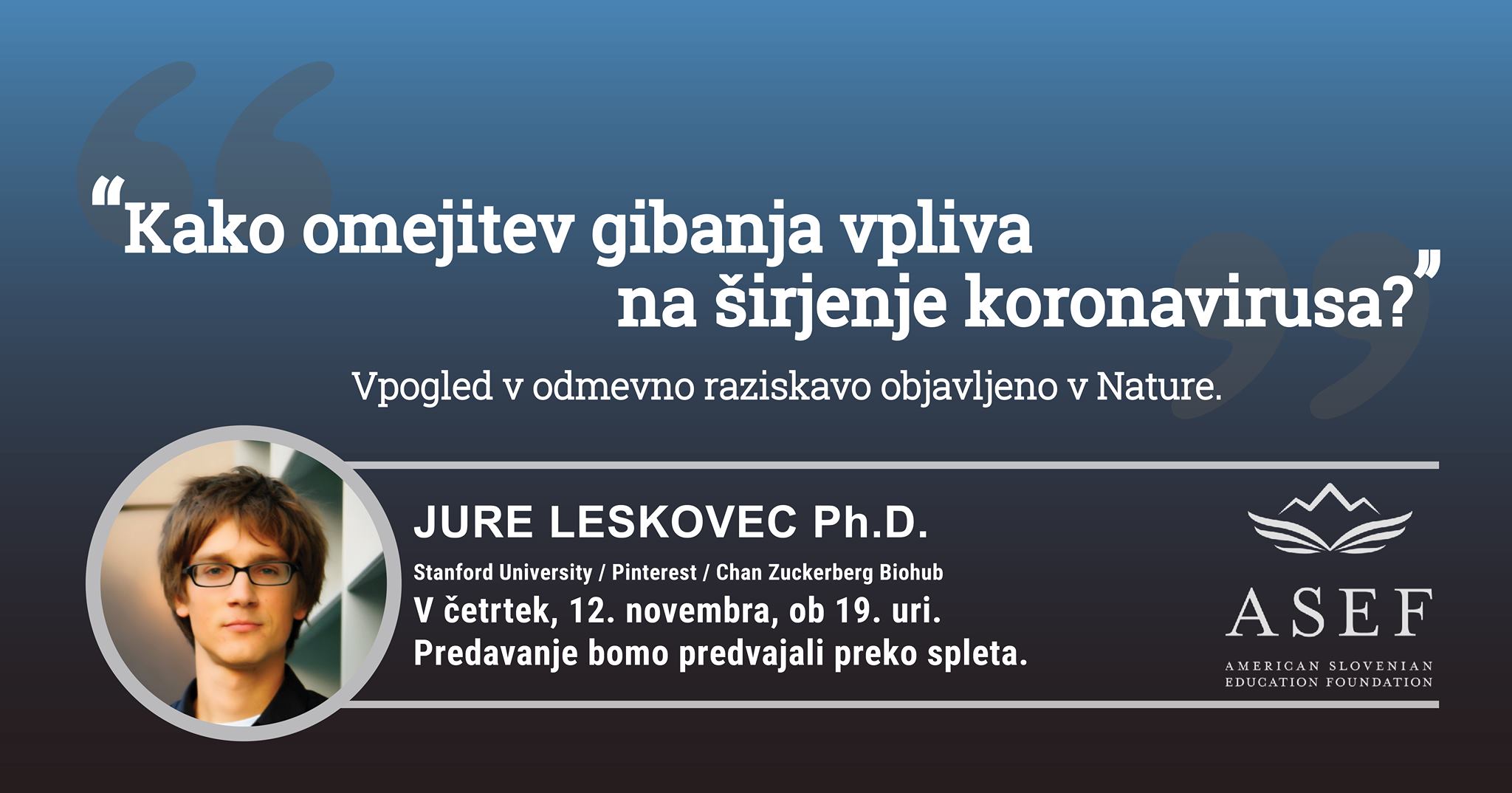
Jure Leskovec: How Does Restriction of Movement Affect the Spread of Coronavirus?
American Slovenian Education Foundation (ASEF) organizes a new ASEF Speaker Series event. This time prof. dr. Jure Leskovec will deliver a lecture titled ‘’How does restriction of movement affect the spread of coronavirus?’’, in which he will present a high-profile study that has been accepted in Nature.
ABSTRACT
The COVID-19 pandemic has drastically changed our behavior and travel patterns. Nevertheless, there are no epidemiological models that accurately predict the spread of coronavirus based on human travel patterns and measures to restrict movement.
At the lecture, dr. Jure Leskovec will be presented the latest research in the field of modeling the spread of coronavirus based on travel habits and human movement. Using cell phone position data, they captured the movement of 100 million people in the 10 largest metropolises in the United States. Their approach estimates the mobility network for each hour of the day – how many people from each neighborhood visit different locations such as restaurants, shops, gyms, churches, schools and the like, and how long they stay there.
Based on such a mobility network, the model predicts the spread of the virus very accurately. Without action, a third of the U.S. population would be infected in one month. They also found that there are “super-spreaders” – 10% of sites cause more than 85% of all infections. Their model can also serve as a decision-making tool in releasing measures. Last but not least, their approach also explains why the socially disadvantaged are more susceptible to the virus – the socially disadvantaged stayed less at home while moving to more risky locations.
BIO
Dr. Jure Leskovec is an associate professor of computer science at Stanford University, a chief scientist at Pinterest, and also a researcher at Biohub Chan Zuckerberg. He was a co-founder of a machine learning startup called Kosei, which was later bought by Pinterest. His research focuses on machine learning and data mining in large social, information and biological networks. He is the recipient of numerous awards (Lagrange Award, scholarships from Microsoft Research Faculty and Alfred P. Sloan, and many awards for scientific articles). Dr. Leskovec holds a bachelor’s degree in computer science from the University of Ljubljana, a doctorate in artificial intelligence from Carnegie Mellon University, and completed postdoctoral training at Cornell University.



